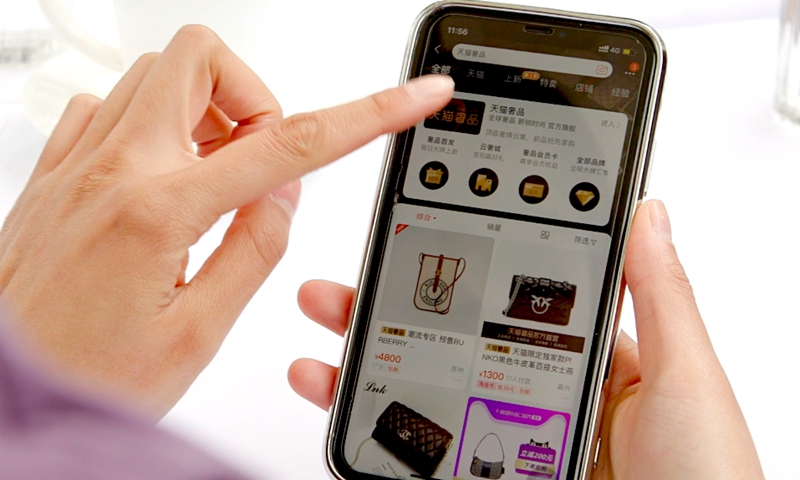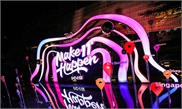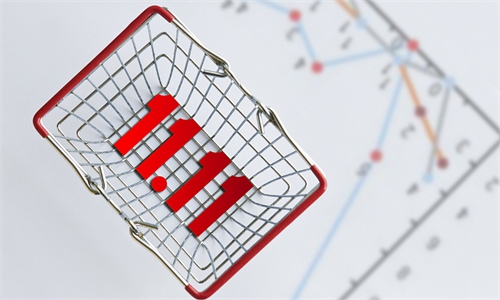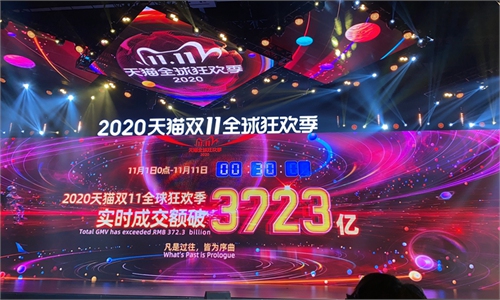
The Tmall luxury zone is seen on a smartphone screen. Photo: Courtesy of Tmall Global
Sales on Luxury Pavilion, a luxury platform under Alibaba’s Tmall e-commerce platform, rose 159 percent year-on-year from January to March this year, according to statistics sent to the Global Times on Thursday from Tmall.
By 2025, maybe even 2022, one in two luxury goods buyers worldwide will be Chinese, while Chinese customers only accounted for 1 percent of global luxury purchases in 2000, French newspaper Les Echos reported in late March in an article that described China as the “luxury El Dorado.”
Global luxury goods giants are optimistic about the Chinese market, and are actively cooperating with e-commerce platforms to accelerate digital transformation, the article said.
The latest data from Tmall also proves this trend. Luxury brands opened on average one flagship store every week on Tmall in 2020.
Luxury houses including Cartier, Gucci, Prada, Armani and Hermès have opened stores on Tmall. So far, more than 200 brands have been attracted to Luxury Pavilion.
Starting this year, international fashion brands have stepped up their efforts. In February, Saint Laurent officially entered Tmall with the exclusive debut of a limited-edition handbag. In March, Van Cleef & Arpels also opened a store on Tmall.
Last year, outbound tourism almost stopped and the global luxury market suffered a contraction. But the Chinese market, which took the lead in recovery from the epidemic, became a “life-saver” for luxury brands.
According to a research report on China’s luxury market by Bain & Company, the global luxury market shrunk by 23 percent in 2020, but the consumption of luxury goods in China rose by 48 percent. China’s share of the world luxury market has grown from 11 percent in 2019 to 20 percent in 2020.
By 2025, China is expected to become the world’s largest luxury market, and e-commerce channels represented by Tmall will continue to lead online growth. China’s annual luxury online penetration increased to 23 percent in 2020 from 13 percent in 2019, according to the Bain & Company report.
Tmall and other e-commerce platforms also use digital technologies to enhance the online shopping experience, like providing 3D store display services for flagship stores of luxury brands and augmented reality trials for beauty brands such as Dior and Estee Lauder.
Global Times



